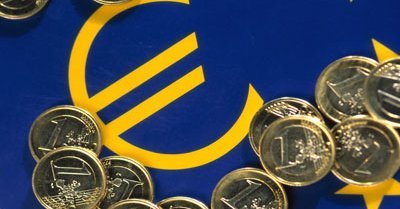The EC proposal of a 6.8% increase (8.8% billion Euros) has been sacked by eight Member States which fiercely opposed such an amount in the name of the economic crisis which forces all governments to cut welfare and social spending. According to a working paper of the Cypriot Presidency of the EU “this agreement will have to be adjusted downward”. The informal meeting of the EU ministers for European affairs hold in Nicosia on August 30th failed to find a compromise. An hard core of Member States, led by Germany and UK, push for a 5.2 billions redaction for the next 6 years. In 2010 the EU budget was 129.1 billion Euros with a 1.9 increase on 2011. These countries, called ’Friends of better spending’ see in a EU budget increase an absurdity in the light of the crisis. Without a green light by the European Council the Multiannual Financial Framework can not be approved.
Even understanding the reasons of these countries, Commissioner Lewandowski called this stop a mistake as the most of the EU spending (80%) goes to agriculture and cohesions funds – aids for Europe’s poorer regions. Only 5.8% of the 2012 EU spending went for administrations (included staff salaries). For this reason a bunch of Members States, such as Poland and France, oppose an eventual redaction to the MFF 2014-2020 as they are amidst the main beneficiaries of the EU funds (France for agricultural and Poland for cohesion). “This is a question of implementing what we have already agreed. Most of these payments are needed for areas with greatest potential for boosting growth and competitiveness”, wrote Commission President José Manuel Barroso in a letter to EU government leaders. The Council answered back that the biggest increases allowed would be for cohesion spending (8%) and border and migration measures (5%).
The EP stands for the EC proposal. MEP Alain Lamassoure (French, Popular), responsible for the dossier in the BUDG committee, criticized countries willing to reduce the EU budget as it would be an unproductive move for the sake of all EU countries. Other than standard EU funding, Member States in dire straits such as Greece, Portugal, Ireland and Spain have benefited of extra EU aids in bailout forms (the EU contributed in bailouts with the ECB and the IMF), 240 billions only to Greece since 2009.
The EC has tried to breakthrough with a proposal for the introduction of a new own resources system which aim at breaking the reliance of the EU budget on Member States. Such a proposal would also change the current mechanisms and rebates (such as the UK one) and improve the simplification and transparency of the budget. The EP has promptly stand for such a move “to put an end to existing rebates and mechanisms” (EP Resolution of the 13 June 2012). MEPs support an own resource system, paid through the introduction of a Financial Transaction Tax FTT at European level and a new VAT which would substitute the citizens paying to national governments. In this way European citizen would let to see the real amount of money paid to the EC (more or less 1% of the EU total GDP) and would give the EU spending responsibility directly to the EU institutions. Commissioner Lewandowsky said that over 2001-2006 period in cohesion policy each Euro invested from the EU resulted in a return of 2.1 and that that return is estimated to rise at 4.2 Euros and that in science and research such return gets up to 14 Euros.
An extraordinary European Council meeting has been scheduled in November. It goes without saying that without a final agreement fundamental EU chapters, such as the Common Agriculture Policy CAP, are at stake. It goes without saying that without a final agreement a federal and more integrated Europe will never be.


Follow the comments: |
|
